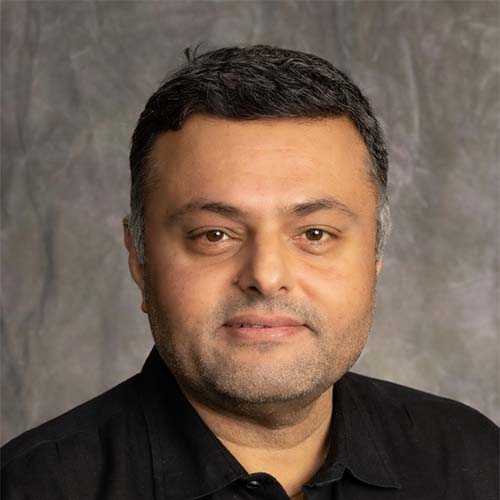
Chair, Professor, Department of Bioengineering
Contact Information
Building: Peterson Hall, Room 3101
Email: kpopat@gmu.edu
Phone: 703-993-1345
Biography
Surfaces that contain micro- and nanoscale features in a well-controlled and “engineered” manner have been shown to significantly affect the cellular and subcellular function of various biological systems. Our research is focused on using the tools of micro- and nanotechnology for applications in biomaterials and tissue engineering. The goal of current research is to design implants that induce controlled, guided, and rapid healing in cardiovascular implants such as stents and heart valves; and orthopedic implants such as hip and knee joint implants. In addition to the acceleration of normal wound healing phenomena, these implants should result in the formation of a characteristic interfacial layer with adequate biomechanical properties.
To achieve these goals, however, a better understanding of events at the tissue-material interface is needed, as well as the development of new materials and approaches that promote biointegration. Our work proposes the use of well-controlled nanostructured interfaces to enhance implant integration. We hypothesize that controlled biomimetic nanoscale architectures can promote cell differentiation and matrix production and enhance short-term and long-term integration. Moreover, the ability to create model nano-dimensional constructs that mimic physiological systems can aid in studying complex tissue interactions in terms of cell communication, response to matrix geometry, and effect of external chemical stimuli. By understanding how physical surface parameters influence cells, we can more effectively design material surfaces that can be used in a clinical setting.
Research
- Titanium Nanomaterials for Orthopedic Implants
- Blood-Contacting Biomaterials for Cardiovascular Medical Devices
- Superhydrophobic and Superhydrophilic Surfaces for Blood-Contacting Materials
- Polymeric Nanostructured Surfaces for Tissue Engineering Applications
- Novel Alloys and Surface Treatments or Implants Applications
Education
- PhD, Bioengineering, University of Illinois at Chicago (2003)
- MEng, Chemical Engineering, Illinois Institute of Technology (2000)
- BEng, Chemical Engineering, Maharaja Sayajirao University (1998)
